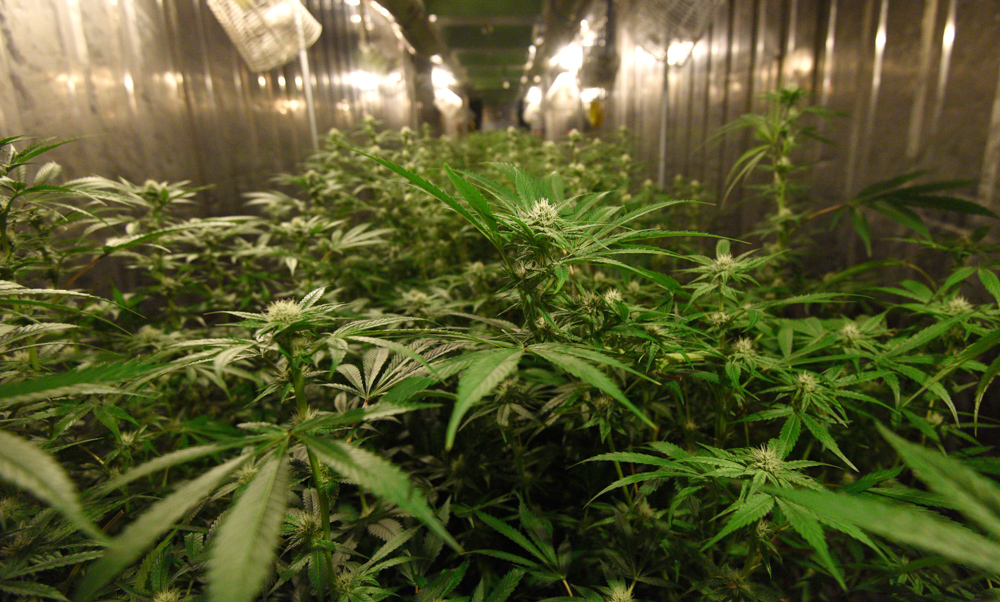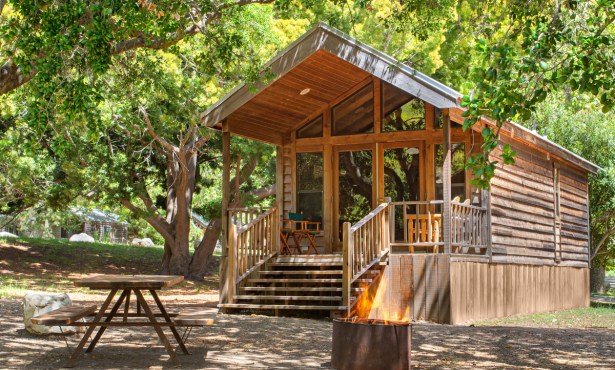Cannabis and Its Discontents in Santa Barbara County
The Battle of the Buzz: Pot Industry Under Fire in Carpinteria and Santa Ynez

People offended by the aroma of fresh chicken manure have been advised for centuries not to move to the country. For people living in and around Carpinteria, however, the problem is the exact opposite.
In this case, we’re talking cannabis, not chicken poop.
I have a friend who lives in downtown Carpinteria, just spitting distance from The Spot. Depending on how winds blow, she says, the smell can get brutal. Sometimes she’d swear someone was lighting up in her living room. Nevertheless, my friend takes pains not to take sides. She runs a small business; cannabis growers pay cash.
Others in Carp, however, are seeing red over all the green. They’ve just created a new “Concerned Citizens” organization to vent their rage. They’re not so easily dismissed as the “just-say-no” pot puritans of a few years ago. This new crew seems to have a functioning sense of humor. They are passing out old-fashioned wooden clothespins inscribed with the words “Concerned Citizens.” It’s cute.
This week, Carpinteria’s clothespin brigade teamed up with like-minded agitators from the Santa Ynez Valley, wine growers mostly, upset by the explosion of cannabis-infused hoop houses there, and stormed the county supervisors chambers. The only things missing were rakes and torches. It was the first round in what threatens to become a very protracted Battle of The Buzz.
Grapes in one corner, bud in the other.
In the Valley, cannabis has followed pinot. Among Santa Barbara’s industries that create semi-altered consciousness, the competition for workers and warehouse space has grown intense. When bud’s in bloom — right before harvest — the aromatics of cannabis clash violently with the un-intruded needs of tasting rooms. A year ago, only chemists knew how to pronounce the word “terpenes,” the compounds giving cannabis its uniquely pungent smell; now, we’ve all become experts. (It remains unclear how well the expensive odor-control systems — installed by some operators — actually work.) This week, the supervisors looked at various ways to tweak the county’s cannabis ordinance, which they passed less than a year ago in hopes of midwifing into existence a new legalized industry so dripping with cash that no one would talk about oil revenues ever again. The conversation started this week remains far from over.
In small town Carp — where everyone knows way too much about everybody else — things could get especially nasty. Both sides boast people who hark back to the days when the Chumash waterproofed their tomols with tar gouged from Carpinteria’s asphalt pits. Or close enough.
Emerging as a semi-reluctant Joan of Arc in the anti-cannabis crusade is Maureen Foley, a young mom who lives on Foothill Road with her Irish novelist husband and young daughter. They sell their jams at the farmers’ market. They raise avocados. She works for the Unitarian Society; he teaches high school English. She serves on the school board, where she’s challenged donations made by the cannabis industry, objecting that Carpinteria is the only district in the state to accept such donations. Foley is one of the Bailards, after whom Carpinteria’s Bailard Avenue is named. They moved to the valley in 1863 and never found a good enough reason to leave. Foley lives in an avocado-green house her family built in the 1930s. She happens to live next door to a property owned by Rene Van Wingerden, he of the operatically sprawling Van Wingerden clan who moved en masse from Holland to Carpinteria in the 1960s, where they all but singlehandedly created Carpinteria’s greenhouse flower industry. For 19 years, Rene’s wife, June, served on the Carpinteria water board. When the cut-flower biz went kaput a few years ago, the Van Wingerdens — rock-ribbed Republicans though they are — found themselves embracing the new cannabis industry with a convert’s zeal.
As Foley — who once worked at the Independent as an editor — tells it, she repeatedly asked Rene whether he intended to convert his next-door orchard into a cannabis operation. She claims he repeatedly said no. Then one day the chainsaws showed up and wiped out all of Rene’s avocado trees, eliminating the canopy her family had long enjoyed. Then came the security guards. Then the MarBorg trucks — at least once a week — to suck up the porta-potty slop generated by Rene’s workers. A couple of sketchy-looking characters mistakenly showed up, Foley said, looking for work at “the pot farm,” and occasionally delivery trucks mistakenly pull into her driveway, bearing things meant for next door. Last November, one truck showed up to deliver a gun safe, she said. She flipped her lid. “I didn’t feel safe,” she said. The invoice indicated the delivery was destined for a company run by Ivor Van Wingerden, Rene’s son, and a guy named Kyle Hardy, a cannabis operator out of Nipomo. Hardy and Van Wingerden have teamed up with a Chicago-based cannabis company, Cresco Labs, which is so big that its stock is traded on the Canadian Securities and Exchange Commission.
Foley discovered she wasn’t living in Kansas anymore.
Some in Carpinteria would say she never did. Carpinteria, they contend, should not be forced to remain in the amber goo of Foley’s past. Times change. I called Rene; he told me someone would call back. They haven’t yet. Foley acknowledged Rene had tried to reach out to her. “I basically chewed him a new one,” she said. Cresco Labs has also contacted Foley, but she has yet to respond. Company representatives dispute a gun safe was ever delivered, insisting it was a fireproof file cabinet instead. They acknowledge that the words “gun safe” are part of the manufacturer’s name. It was an understandable misinterpretation, they say, but erroneous. Foley says both were delivered.
It ain’t over but the shouting. And that’s just beginning.



